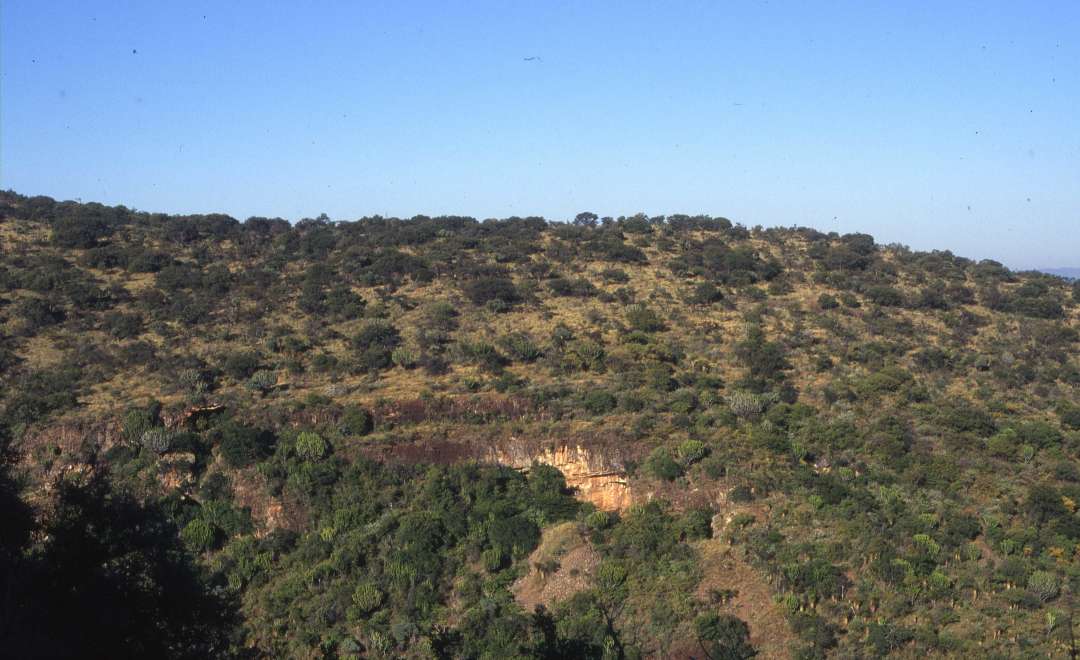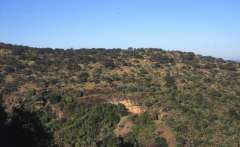ERC Advanced Grant for Paleoanthropologist Gabriele Macho
European Research Council funds project on early human evolution at Senckenberg
Paleoanthropologist Prof. Dr. Gabriele Macho will be awarded an ERC Advanced Grant by the European Research Council (ERC). The ERC is funding her international research project “PLIODIS,” based at the Senckenberg Research Institute and Natural History Museum Frankfurt, with a total amount of approximately 2.5 million Euros over a period of five years. In cooperation with researchers from Witwatersrand University in South Africa, the EPOC laboratory (University of Bordeaux/CNRS/Bordeaux INP), and the University College London, among others, the interdisciplinary project aims to investigate the population dynamics of early hominins in Africa. ERC Advanced Grants are awarded by the European Research Council to support innovative, cutting-edge research by established scientists
Today, humans inhabit virtually every corner of the earth. This unprecedented spatial expansion of our species was made possible by human’s unique ability to adapt to extremely different environmental conditions. But when in the course of human evolution did this ability develop? It is widely accepted that the earliest hominins evolved in tropical Africa around six million years ago. Archaeological finds indicate that hominins also occurred at higher latitudes in South Africa, beginning around 3.7 million years ago. Compared to East Africa, today’s environmental conditions there are more challenging and the climate and availability of resources are subject to greater seasonal fluctuations.
“It is currently not clear whether the early humans living in southern Africa already had the necessary adaptability in terms of physiology and behavior to actively migrate to more temperate zones in the south, or whether they found their way there as a result of stochastic tectonic or climatic events,” explains Prof. Dr. Gabriele Macho, who is currently conducting research at the University College London, and she continues, “Which of these scenarios ultimately proves to be correct will be relevant for answering the still open question of when our ancestors developed their special ability to adapt to very different climatic conditions, which ultimately allowed them to spread beyond Africa during the Pleistocene. It is possible that the foundation for this was already in place more than 3.7 million years ago, even before the genus Homo emerged.”
Until now, it has been difficult to investigate this question – overall, there is only a small number of preserved fossils, and no known fossil sites exist between East and South Africa for the relevant period, the Pliocene. “As part of the ‘PLIODIS’ research project at Senckenberg, we will use a novel, multidisciplinary approach that is anchored in ecology and population dynamics and focuses on the dynamic interplay between paleoclimate, ecology, geomorphological changes, and biological evolution,” says Macho.
Senckenberg’s Director General, Prof. Dr. Klement Tockner, congratulates Prof. Dr. Gabriele Macho on the funding for her project. “An ERC grant is considered the gold standard in cutting-edge research worldwide. Senckenberg shows once again that an open, appreciative, and creative research environment is essential for achieving an international leadership role. The innovative, interdisciplinary research approach by Gabriele Macho and her international team promises answers to an exciting question that has been discussed by paleoanthropologists for a century: What role did temperate southern Africa and the diverse fossil hominins found there play in the evolution of modern Homo sapiens?”
Working with researchers in various fields from Witwatersrand University, the EPOC laboratory (University of Bordeaux/CNRS/Bordeaux INP), the University College London, and the Senckenberg Research Institute and Natural History Museum Frankfurt, Macho will initially address the questions of whether the paleoclimatic and paleoecological conditions at that time differed fundamentally from those of today and whether populations of early hominins may have been isolated by tectonic, geomorphological, or climatic events. “Based on these findings, we can then draw conclusions as to whether our ancestors had already become sufficiently versatile to actively colonize temperate zones 3.7 million years ago,” adds Macho in conclusion.
The European Research Council (ERC) is an institution established by the European Commission to fund excellent basic research. The ERC Advanced Grants provide funding for ground-breaking research projects by experienced scientists. Up to 2.5 million Euros are awarded to the projects over a period of up to five years.


